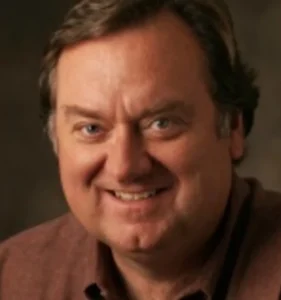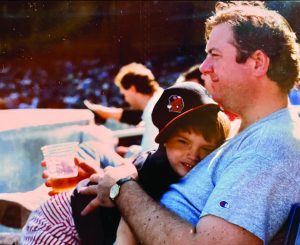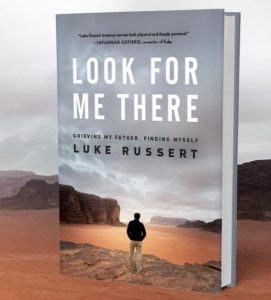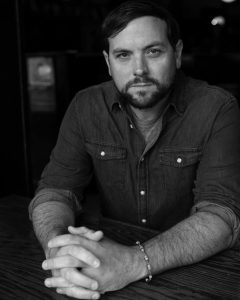For years, the name Tim Russert was synonymous with thoughtful political commentary.
When the Meet the Press anchor died suddenly of a heart attack in June 2008 — just before Father’s Day — viewers on both sides of the political aisle mourned his passing.
Now, his son, Luke, has set out to tell his father’s story in a new book, Look for Me There.

Tim Russert
In an exclusive religious publication interview with Baptist News Global, the younger Russert began by explaining why he decided to write the book.
“I didn’t know I was going to write a book,” he said. “I had kept all these journals while I’d been traveling. I was going through a tough time in 2018 when I was trying to figure out what I wanted to do. I started to review the journals, and what I saw in the journals was a sort of stream of consciousness, some perception and different feelings I was having, in those times. What I realized … is that I was writing two things sort of simultaneously, which was ultimately the acceptance to be my own person, independent of my father, but I was also running away from something and that was the grief of losing dad.
“I never had processed that grief because I always felt if I really processed it, then he would really be gone.”
Luke Russert worked eight years as a reporter for NBC News. His process of stepping away from that began in a private conversation with former Speaker of the House John Boehner, who pressed Luke to find himself outside the bubble of Washington, D.C., where he was born and raised.

A young Luke Russert at a baseball game with his father.
Tim Russert was an avid baseball fan, and father and son often went to games together. As a child, Luke was told by his father if he ever got lost in the crowd to go to an assigned place in the stadium and “look for me there.”
It was through looking for his father after his sudden death that Luke found himself. The book tells the story of a son’s grief over the loss of his father and how he found hope.
Luke is a person of faith. He has one of his favorite Bible verses — Luke 12:48 — tattooed on his arm: “To whom much is given much is required.”
That’s “something my father used to always say to me,” he explained. “It was one of his favorite verses, and I think part of it spoke to duty and expectation that, you know, when you are blessed, you have a responsibility to give back, to do more.
“It was an interesting passage because for a number of years, especially after I left NBC, it kind of haunted me. I was trying to get into the meaning of this idea: Are you doing enough? Are you good enough? Are you helping enough? Are you worthy of everything you’ve come into?
“And then I realized over the course of my journey that one of the things we miss with that Scripture is that part of the expectation is to be a good, decent human being.”
That’s a legacy he wants to carry on from his father, and it’s one he hopes others will take up as well.
 By writing out his thoughts and feelings about his father, Luke began to discover something within himself: “The most enjoyable part of the journey was actually those first drafts of the book process. An inner release began to happen on the inside of me. That’s where I sort of dug into myself and started to feel like I was doing something important for the first time.
By writing out his thoughts and feelings about his father, Luke began to discover something within himself: “The most enjoyable part of the journey was actually those first drafts of the book process. An inner release began to happen on the inside of me. That’s where I sort of dug into myself and started to feel like I was doing something important for the first time.
“I didn’t know how to write a book, so you just give it your best,” he explained. “There’s just a certain beauty of that. The first draft of the book was 300,000 words before the editing began, I look back on that season very fondly.”
As he wrote, Luke realized his father, although not with him physically, is still right beside him and wants him to live his life and run his race well.
“My father was very special in that he put in the work, and he always carried that strong work ethic with him. I think it came from my grandfather, who worked two jobs for 40 years. He was a garbage man and a truck driver, and so my father used to always just have that hard ethos of hard work and would admit nobody was going to outwork him.

Luke Russert
“It was intense sometimes growing up watching that competitiveness,” Luke said. “I was able to see that he had that unique ability to be super competitive and super hardworking, but also do it with a smile on his face and be super kind. He was able to be a happy warrior. I think that’s something a lot of people understood and why he was so beloved — that he was working for the people, and he did it with a smile on his face.”
Now, the son wants to make sure he embodies the faith and strength of the father in his own journey. To do that, he realized he needed to step away from his job.
“I did some very deep meditative praying, and I ultimately came to the conclusion that at least in my own life, that to be the best version of myself — my job at NBC had become so demanding that I knew that until I dealt with the grief of my father I couldn’t give it 110%. I reached a point of peace where I realized, especially with God, that for me to contribute the most I could, I needed to figure out who I was.”


